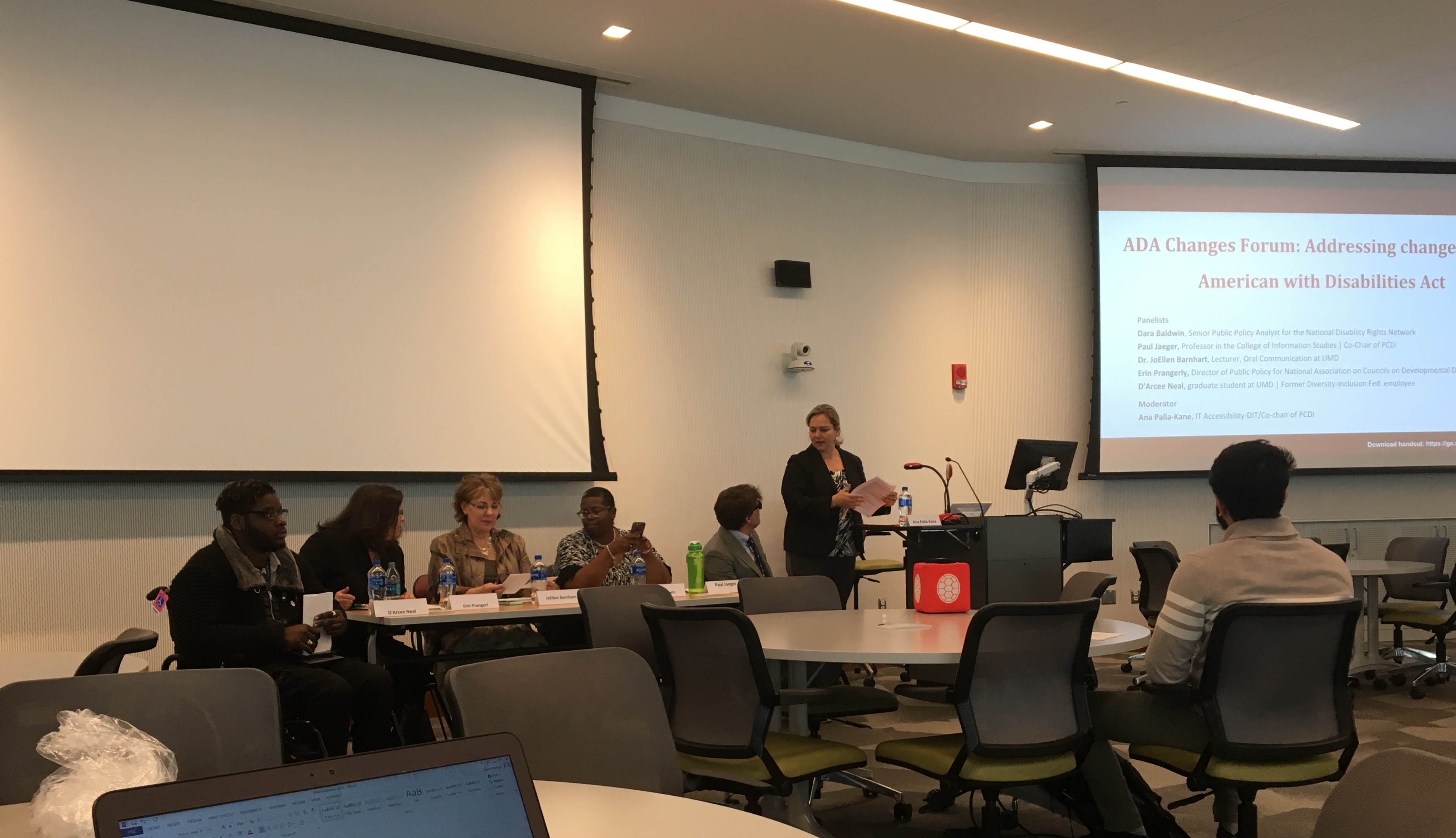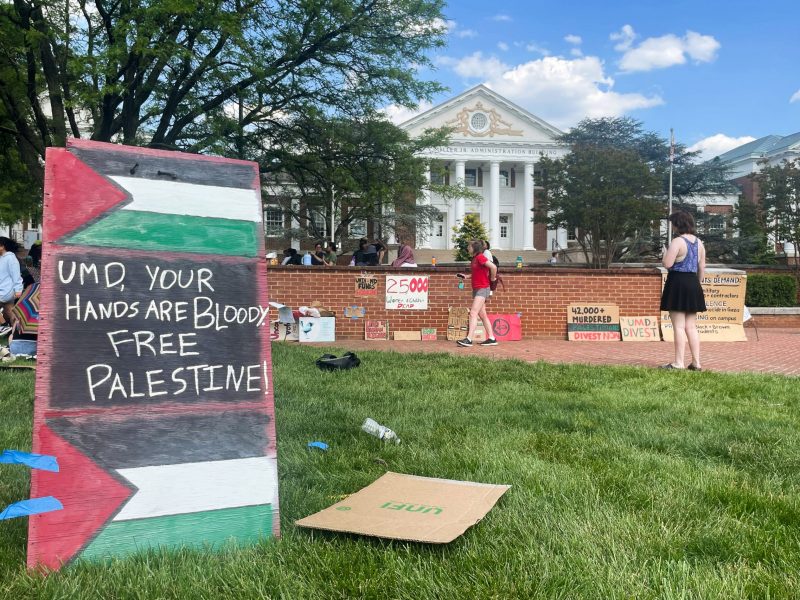By Elana Morris
For The Diamondback
When JoEllen Barnhart had her first child at the age of 31, she said she was unprepared as she found out her son Michael had Down Syndrome.
Though Barnhart said the condition presented unfamiliar challenges, she was determined to become a strong advocate for her son. However, as time progressed, Barnhart encountered frustrating obstacles preventing her son from getting necessary childcare.
“I was furious that there was nothing available,” she said. “So I rolled up my sleeves.”
In a few years’ time, while pregnant with her third child, Barnhart established the first inclusive child-care facility in Washington County.
Barnhart is an oral communication lecturer at the University of Maryland. She spoke at an event Thursday alongside several other panelists about the history of the Americans with Disabilities Act in regards to civil rights.
The event, “ADA Changes Forum: Addressing changes in the American with Disabilities Act,” was hosted by the President’s Commission on Disability Issues. It addressed the ADA Education and Reform Act of 2017, a bill that was proposed in February, passing in the House before dying in the Senate.
This bill would have lowered the regulations required of businesses to accommodate those with special needs.
Despite its failure in the Senate, advocates for the disabled community represented at this meeting are concerned, prompting this meeting, as many feel their rights might become jeopardized.
During the event, the panelists also discussed the effects this bill would have had on this campus, as businesses and public places are required under Title III of the act to be physically accessible to people with disabilities, but the proposed bill would have removed the powers of the mandate.
D’Arcee Neal, a graduate student at this university studying writing and rhetoric and the graduate assitent for the comission, was also a panelist. Neal has cerebral palsy, and uses a wheelchair to get around. Therefore, the physical amenities required under the ADA are essential to his life.
Despite the ADA provisions, Neal said he still finds it difficult to navigate campus.
“When you leave this building and go straight forward, I can’t even get to the bus,” Neal said. “When they built the curb cut, they only did it halfway. I have no choice but to roll in the street with the buses.”
He, along with the other panelists, expressed frustration and anger at the lack of accommodations that are afforded to the disabled, even with the ADA in place.
“There aren’t people with disabilities who are architects, who are making the laws,” Neal said.
Dara Baldwin, a senior public policy analyst for the National Disability Rights Network, agreed with Neal and said lawmakers need to be more aware of the effects of their policy changes.
“Stay out of this, since you don’t know what you’re doing,” she said, in reference to lawmakers.
Sophomore Neitik Patel, a mechanical engineering major, said after attending this panel, he was surprised by the amount of information he did not know about disability issues. Though he said he previously worked with children with disabilities, he said he had not considered the difficulty that customers with disabilities might face when entering his father’s store.
“It shows that you’re not treating everyone equally as we should,” Patel said. “My idea is going back and telling my dad, ‘Try to put this ramp there and provide this source that we were not looking into.'”



